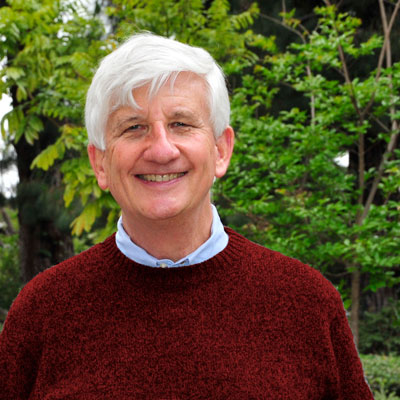|
SOHO President's Message
By David W. Goldberg
November/December 2024
 Photo by Sandé Lollis |
For almost two years, there’s been a concerted push to “reform” preservation in the City of San Diego. The underlying argument is that preservation places undue constraints on the approval and production of affordable housing. This is patently false. The preservation of historic and existing housing helps protect total affordable housing stock, not diminish it. Preservation doesn’t stand in the way of construction of affordable housing. The rub is that builders want to build highly profitable market-rate housing, not low-profit or unprofitable affordable housing.
This isn’t to say that preservation reform isn’t needed. It is. The first step is understanding the problem. The system is cumbersome, hard to navigate and, frankly, inequitable. It puts the economic benefits of preservation out of reach of many working- and middle-class individuals.
Sometimes it’s hard knowing where to begin, but a good start would be tackling the backlog of undesignated historic districts. It should be of great concern to preservationists—and the city’s Historical Resources Board (HRB)—that no districts have been processed since 2017. Some districts have been in the queue for as long as 50 years. This is unacceptable, especially considering that fees charged to designate historic properties have increased dramatically in recent years. Part of the rationale for the fee increases was that the additional revenue would be used to hire additional staff to break the backlog. This hasn’t happened.
This processing delay is unfair not only to the preservation community and the general public, who have seen historic resources destroyed or irreparably altered, but also to builders who need clarity on whether a structure within a historic area is considered a historic resource. In the “Response to Request for Analysis of Potential and Designated Historical Resource Review” prepared by the Office of the Independent Budget Analyst, dated July 18, 2023, Recommendation 2 states, “A robust historical survey and historical district program should be developed to provide greater certainty to future development and help streamline the permit review process.” We agree.
A citywide historical survey, like the one completed in Los Angeles, is necessary. The timely processing of historic districts would go a long way in addressing concerns. Much of the research has already been done, and many, if not most, local historic resources are located within identified historic districts.
Unfortunately, it’s currently futile trying to process historic district designations through the City of San Diego. Instead, applicants must turn to the State Office of Historic Preservation (OHP) for relief. This isn’t being done to circumvent or “get around” the city—a fact that came as a surprise to several HRB members—but because, as a practical matter, the City of San Diego no longer provides a path forward. This needs to change.
Another issue that needs addressing is the social inequity built into San Diego’s historic designation program. The tripling of application fees and increased complexity in preparing historical resource research reports has made it all but impossible for working- and middle-class individuals to seek historic designation. The city was supposed to reduce fees for applicants from lower income neighborhoods, but this hasn’t come to pass. Moreover, additional technical support was promised to those who lack the means to hire a professional report writer. Again, this hasn’t happened.
The benefits of historic designation shouldn’t be limited to affluent individuals who can pay the rising fees and hire professional report writers; it should be available to all. By making historic designation more complex and expensive, access to the Mills Act, which provides property tax relief on designated properties, becomes increasingly difficult. The Mills Act is the only City of San Diego program that directly lowers the cost of home ownership. At a time when there is a serious affordable housing shortage, it beggars the imagination that Mills Act benefits are largely out of reach for those who need them the most. This too needs changing.
On a somber note, I was greatly saddened to learn of the passing of SOHO board member Allen Hazard. I’m still stunned by the loss. As SOHO executive director Bruce Coons would say, Allen had preservation in his DNA. Allen had a passion for preservation, architecture history, and period design that few possess. He was one of the founders of Mission Hills Heritage and a driving force in preserving the architectural heritage of that beautiful neighborhood. He was one of the best preservationists I’ve known. He made a difference. He will be missed.
BACK to the table of contents
|
2025
2024
2023
2022
2021
2020
2019
2018
2017
2016
2015
|




